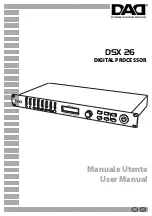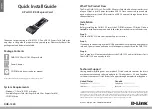
Glossary
GPIB-PC User Manual
G-4
©National Instruments Corp.
HANDLER - Device driver software installed within the operating
system. Same as a DOS installed device driver. See Driver.
HARD BOOT - See Boot.
HIGH-LEVEL FUNCTION - A device function that combines several
rudimentary board operations into one function so that the user does
not have to be concerned with bus management or other GPIB
protocol matters. See Low-Level Function.
IBCONF.EXE - The GPIB-PC configuration program. See Configuration.
IBCNT - A global variable that is updated after each I/O function call to
show the actual number of bytes sent or received.
IBERR - A global variable that contains the specific error code
associated with a function call that failed.
IBSTA - A global variable that is updated at the end of each function
call with important status information such as the occurrence of an
error.
IBSTART.BAT - The GPIB-PC installation program.
IBTEST.BAT - The GPIB-PC diagnostic program.
IFC or INTERFACE CLEAR - A GPIB line used by the System
Controller to initialize the bus. See DCL and SDC.
INTERFACE MESSAGE - A broadcast message sent from the Controller
to all devices and used to manage the GPIB. Common interface
messages include Interface Clear, listen addresses, talk addresses,
and Serial Poll Enable/Disable. See Data or Device Dependent
Message.
I/O or INPUT/OUTPUT - In the context of this manual, the transmission
of commands or messages between the computer via the GPIB-PC
and other devices on the GPIB.
I/O ADDRESS - The address of the GPIB-PC from the CPU's point of
view, as opposed to the GPIB address of the GPIB-PC. Also called
port address or board address.
LAD or LISTEN ADDRESS - See MLA.










































